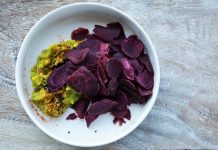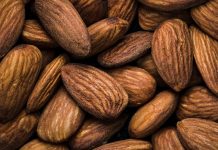
Scientists from several German research institutes found that eating less salt could reduce blood pressure and depression.
Primary aldosteronism (PA) is a common medical condition that affects the adrenal gland, which produces a hormone called aldosterone.
When too much aldosterone is produced, it can lead to high blood pressure and other health problems.
High salt intake has been found to worsen the effects of PA, making it important for patients to reduce their salt intake.
A new study looked at how a moderate reduction in salt intake can help people with PA to lower their blood pressure and improve their overall health.
The study included 41 patients who were already taking medication for high blood pressure, including medication to remove excess aldosterone from the body.
For 12 weeks, the participants followed a dietary salt restriction plan, which included nutritional training and the use of a mobile health app to monitor salt intake and adherence.
At the end of the study, the participants had significantly reduced their salt intake, from an average of 9.1 grams per day to 5.2 grams per day.
The results of the study showed that the participants who followed the dietary salt restriction plan had significant improvements in their blood pressure levels.
Specifically, their systolic blood pressure (the top number) decreased from an average of 130 mm Hg to 121 mm Hg, and their diastolic blood pressure (the bottom number) decreased from an average of 84 mm Hg to 81 mm Hg.
In addition to the improvements in blood pressure, the participants also experienced other health benefits.
They lost an average of 1.4 kilograms in weight, and their pulse pressure (the difference between systolic and diastolic blood pressure) improved from 46 mm Hg to 40 mm Hg.
The study also found that the participants’ ability to estimate their dietary salt intake improved significantly, indicating that they were better able to monitor and control their salt intake.
Furthermore, the participants’ mental well-being also improved, with a significant reduction in depressive symptoms.
Overall, the study highlights the importance of reducing salt intake in patients with PA, as it can lead to strong improvements in blood pressure, weight, and mental well-being.
The study also suggests that a sufficient blockade of the renin-angiotensin-aldosterone-system (RAAS) can augment the effects of salt restriction on blood pressure and heart health.
These findings can inform future dietary recommendations and treatment strategies for people with PA.
High blood pressure, also known as hypertension, is a common medical condition in which the force of blood against the walls of your arteries is consistently too high.
Blood pressure is measured in millimeters of mercury (mmHg) and is expressed as two numbers: systolic pressure (the top number) and diastolic pressure (the bottom number).
A normal blood pressure reading is considered to be less than 120/80 mmHg. When blood pressure is consistently above 130/80 mmHg, it is considered high and may require treatment.
High blood pressure can be dangerous because it puts extra strain on your heart and blood vessels, which can lead to serious health problems such as heart disease, stroke, and kidney disease.
High blood pressure often has no symptoms, which is why it’s sometimes referred to as the “silent killer.”
Many factors can contribute to high blood pressure, including genetics, age, weight, diet, physical activity level, and stress.
Treatment for high blood pressure often involves lifestyle changes, such as exercise and dietary modifications, as well as medications prescribed by a doctor.
It’s important to monitor and manage high blood pressure to reduce the risk of complications and maintain good health.
Regular blood pressure checks are recommended for everyone, especially those with a family history of high blood pressure or other risk factors.
The research was published in the Journal of Internal Medicine and conducted by Holger Schneider et al.
Copyright © 2023 Scientific Diet. All rights reserved.








